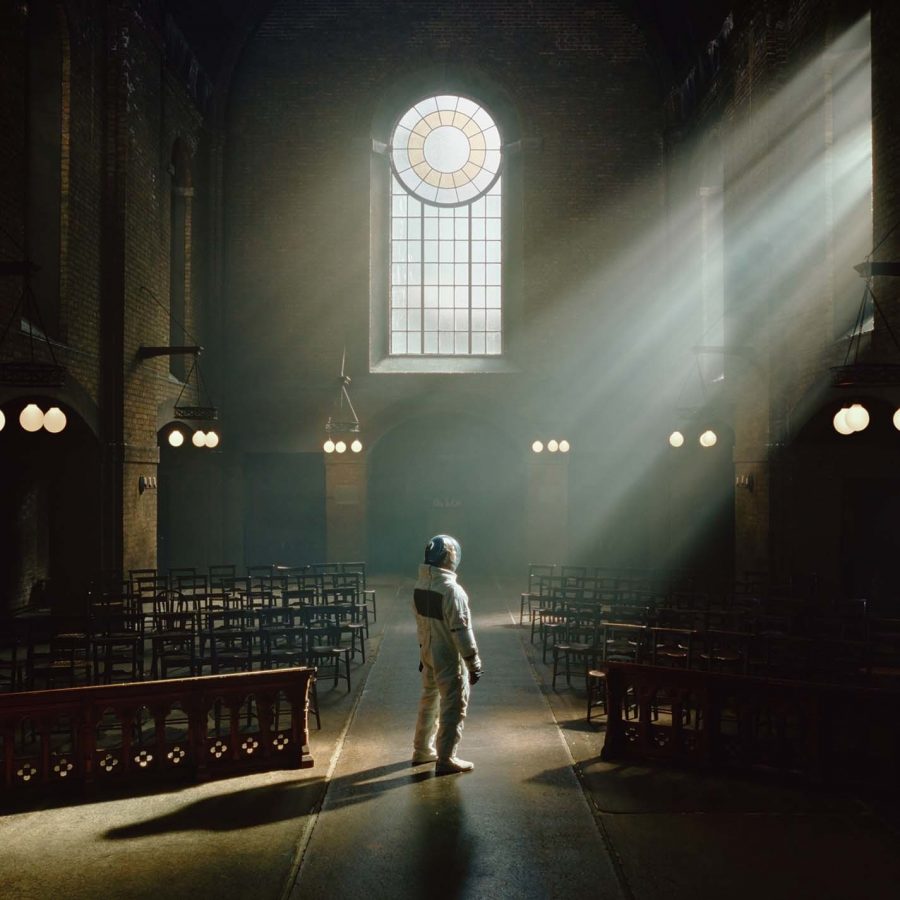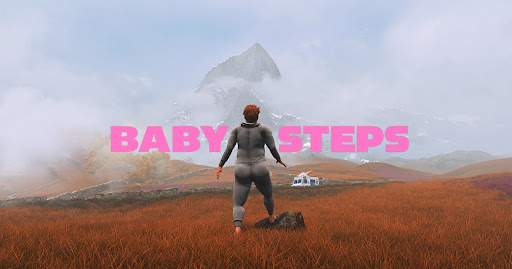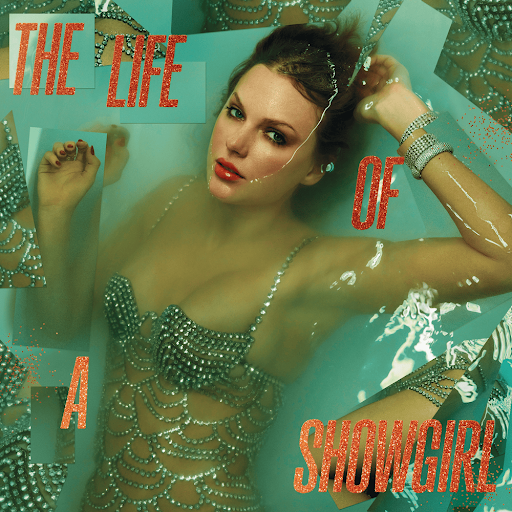Dom Reviews: “For Those That Wish To Exist” (2021)
Architects are a five-piece metalcore (a genre that primarily combines metal and hardcore punk) band hailing from East Sussex, England. Their latest full-length project, For Those That Wish To Exist, follows up the band’s critically acclaimed and popular Holy Hell, released in 2018.
This album was my first introduction to Architects. I had first heard about them through praise from other bands that I am a fan of, such as Boston Manor and Royal Blood, whose frontman actually makes an appearance on this album.
Intrigued by the support that this album was getting from bands I loved and metal/rock fans alike, I decided to give Architects a try. Needless to say, I headbanged my way through most of the review process.
Track by Track
The album opens with the amazingly-titled “Do You Dream Of Armageddon?,” immediately establishing a dramatic and cinematic tone. A subdued intro with some noisy synths and a few strings quickly turns into a pounding, fully orchestrated track that sounds like the climax of a Marvel movie trailer. Sam Carter sings in a hushed but well-harmonized vocal, “Do you dream of Armageddon/Just to get yourself to Heaven?.” For an intro track, it certainly does its job.
“Black Lungs” wastes no time introducing a dizzying guitar riff with heavy drums and what sounds like shrieking synths in the background. It’s a bit hard to hear some of the finer details of the track under the immense space the drums and guitar take up on the track, especially at the start. This is, unfortunately, a theme that’s true for many of the album’s cuts. While a lot of the guitar riffs on this album are fantastic, they can be a bit overbearing at times. Carter’s screamed vocals on the verse are executed well, as are his quieter vocals on the pre-chorus. His voice is front and center on the chorus and the string accompaniment compliments the sound and adrenaline-pumping tone well. It’s pretty damn catchy to top it off. It reminds me of the chorus of Bring Me The Horizon’s “Medicine” but dialed up a few notches. What makes this song an absolute smash, however, is when the tone turns sinister on the bridge and Carter’s vocals begin to ramp up in intensity before breaking out into a guitar riff that makes me want to punch my fist through a window. Carter’s guttural vocals really sell it here.
“Giving Blood” turns up the tempo a bit and begins with a catchy high-pitched guitar loop. Unfortunately, both the first verse and the chorus of this song feel a bit lackluster. The drumming and vocal melody on the verse feels like it was thrown together awkwardly at the last minute and the chorus sounds generic outside of the aforementioned high-pitched guitar. However, the second verse switches things up a little and introduces falsetto vocals and a drum beat that fits the vibe of that section much better. When the following chorus kicks in, it’s the same mediocrity up until the post-chorus where the song shifts to a half-time feel. This at least gave the song some much-needed momentum and variation.
“Discourse Is Dead” is probably my favorite song on the album. It’s one of the more cinematic cuts on the record and the band sounds much more confident than they did on the previous track. Lyrically, it’s a poignant message about political division, which is sure to resonate with many people at this time. The chorus begs to be sung along to loudly in a live setting. The guitars on this one are especially thick and I really liked the little electronic flourishes on the bridge, even if I wish the mix made these parts clearer. I also like how they have three distinct sections on the final chorus/outro of the song: first with the quieter vocals, then the double-time tempo, and finally ending with those thick guitars we hear during the intro. It sounds like something out of Bring Me The Horizon’s album Sempiternal, which I’m all here for.

“Dead Butterflies” has one of the most compelling vocal performances on the album, showing off Carter’s great vocal range, seamlessly switching between soaring highs and quiet falsettos. Lyrically, it’s quite vague and shallow, but the chorus on this track also begs to be sung along to. The instrumental bridge has a great guitar riff and the song’s chorus, like many others on this album, is another solid mix of orchestration and heavy metal. The horns on this track especially stand out in making this song sharper and harder hitting.
The next three tracks are when For Those That Wish To Exist is at its weakest. For an album that’s close to an hour in length, I believe that cutting “An Ordinary Extinction”, “Impermanence”, and “Flight Without Feathers” would have made the album a stronger and more concise experience.
“An Ordinary Extinction” has a decent enough intro that wouldn’t feel out of place on the soundtrack for the videogame series Doom. Yet, the momentum is completely lost when it switches to a dancier feeling verse with triplet synths and shabby vocals. When the chorus kicks in, it pales in comparison to some of the other choruses on the album with nothing memorable happening. Carter’s vocals lean into ear-piercingly annoying territory as he tries to sing one of the highest notes on the record that just comes across as him straining too hard. He doesn’t sound confident at all. The rest of the song is pretty par for the course with not many surprises.
“Impermanence” also suffers from being utterly forgettable. At this point in the tracklisting, it’s simply not enough to keep treading old waters without adding anything particularly special. Even the guest appearance from Winston McCall of Parkway Drive fame isn’t anything interesting.
“Flight Without Feathers” is easily the worst song on the album. It attempts to be a dreamy, soft, electronic moment complete with artificial drums and plenty of synths. Sonically, it sticks out like a sore thumb from the rest of the album and doesn’t make use of the band’s instrumental talents. The song comes across as a cheap effort to put a slower, softer moment in the record for the sake of breaking up the loud and heavy moments of the previous tracks. On top of that, it’s extremely boring. It was bold of Architects to put this snoozer of a song smack dab in the middle of the album.

Thankfully, we are brought back to a moment of greatness on “Little Wonder” with a drum rhythm that feels unique to most of the songs of the record. The guest verse from Mike Kerr of Royal Blood was great. I’m a big fan of his voice so it wasn’t hard to please me with an appearance from him. The instrumental breakdown on the bridge is really well done with the way the bass drum lines up with the shifting guitar riff. It also contains one of Carter’s best screams on the album, which is always a highlight.
“Animals” begins with yet another gargantuan riff before some sad, reverb soaked pianos come in that make me wish that there was more piano on this album. On the chorus Carter yells, “We’rе just a bunch of fuc*ing animals/But we’re afraid of the outcomе,” simultaneously showing solidarity and disgust with the human race. It’s a solid tune overall with all of the same sonic tropes you’d expect from this album: a heavy instrumental breakdown, a yelled chorus, loud guitars, a half-time section, and a cinematic tone with orchestral flourishes.
“Libertine” stands out for its great use of Carter’s screaming voice and the “woahs” of the background vocals. Again, it’s more of what you’d expect from the band, but it still works regardless. This far into the album, the sound can get a bit tiresome, but I think it can be alleviated by skipping the three tracks I mentioned earlier.
“Goliath” suffers from the same downfalls as “Impermanence”. It simply doesn’t add anything new or interesting to the album. A track like this just feels too formulaic and predictable for an album of this length.
“Demi God” brings back the piano I loved on “Animals” and the cascading keys on the chorus elevate it just enough for it to feel fresh. The second half of this song chooses to end on a somber note rather than a bombastic one, which at least made the song feel different from many of the other tracks on the album.
“Meteor” is a great cut on its own, yet it still suffers from being at the end of a long list of songs that sound fairly similar.
The album’s closer, “Dying Is Absolutely Safe”, is another one of my favorites right behind “Discourse Is Dead”, and it almost completely makes up for the album’s repetitive second half. Much of the song is driven by an acoustic guitar, a unique choice for the sonic palette of this album that doesn’t feel awkward like the shift that took place on “Flight Without Feathers”. The lyrics here are some of the best writing on the album and is very existentialist, again dealing with life and death. It all feels very final as the album ends with the words “Beloved distant blue, one day I’ll die for you/And swim in sweet serenity ’cause death is not my enemy”. It’s an almost hopeful note that’s reflected in instrumentation of the stunningly gorgeous second half of this song. A lightly played piano moves up into the higher octaves with light strings in the background and an emotionally moving and intimate performance from Carter. Then, a marching band-style snare drum breaks in with a full orchestra and choir that makes for an absolutely beautiful final moment on the album. It’s emotional, unexpected, and cinematic. The album finishes just as the album began but with a new perspective on life.
Final Verdict
While For Those That Wish To Exist has no shortage of headbanging guitar riffs and strong lead vocals, it also suffers from an exhausted tracklist, questionable mixing, and repetitiveness. It’s probably best listened to in chunks. I can’t say this album left me unsatisfied, just wishing for more consistency. However, I’m excited to see where the band goes moving forward.
Rating Scale:
0 – 4 = Ranges from “utter garbage” to “generally disliked it”
5 = Indifference
6 – 10 = Ranges from “generally liked it” to “masterpiece”
Final Rating = 6.7/10











